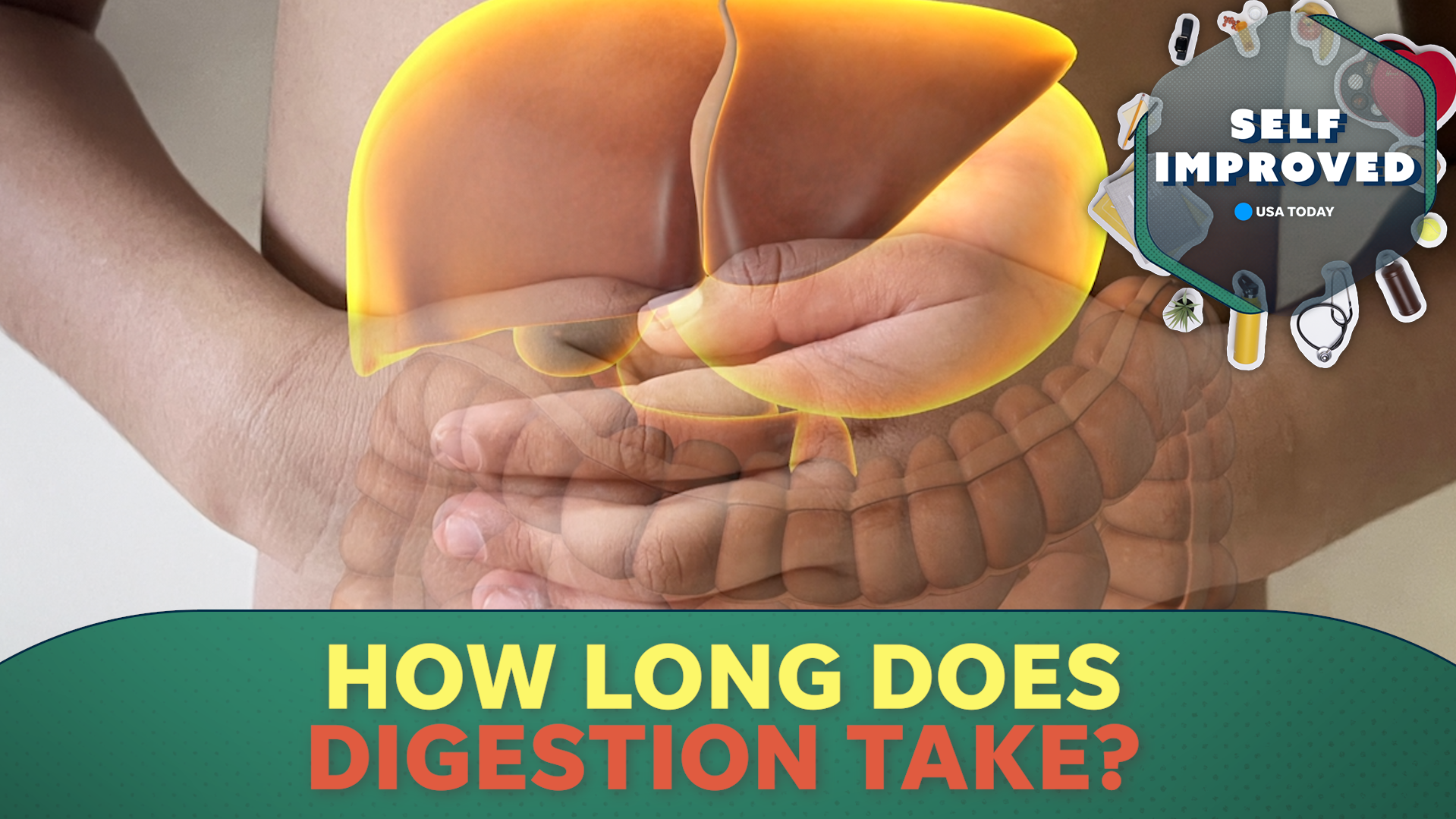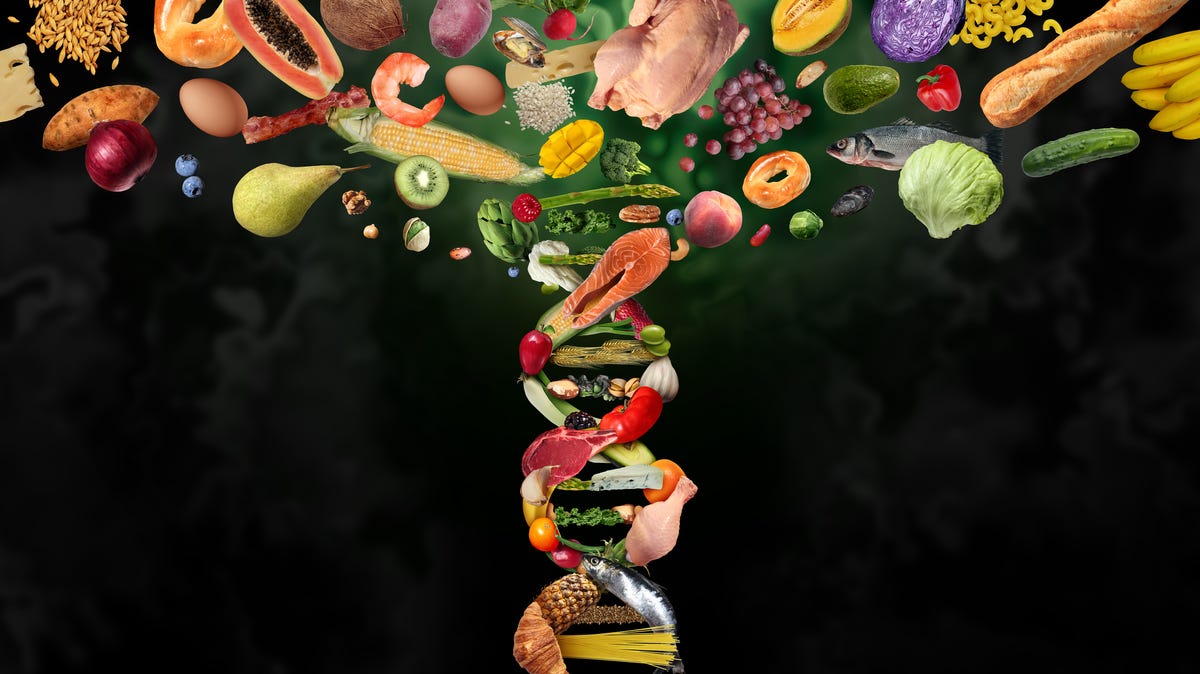
How the large and small intestine function in the digestive system
Nutrition therapist Lauren Kelly gives the breakdown on how the digestive system breaks down food in our bodies.
Imagine trying to bake a cake without heat. You’ve got all the ingredients like flour, eggs and sugar, but nothing is happening. That’s what your body would be like without enzymes: potential but no action. These microscopic marvels turn raw materials into energy and are the invisible helpers working behind the scenes for every breath you take, every bite you chew and every step you walk.
In fact, without enzymes, your cells would simply stop functioning. “No living organisms on earth can survive without enzymes,” says Dave Farina, a science educator and founder of Professor Dave Explains. “We should be happy we have them, or we would not exist.”
Here’s what enzymes are, what they do and how you’ll know if you are ever low on them.
What is an enzyme?
Enzymes are specialized proteins that speed up chemical reactions inside a living organism. Without them, most of the chemical reactions in your body wouldn’t happen “or would occur too slowly to sustain life,” says Whitney Holden, PhD, a biology professor at the Arkansas School for Mathematics, Sciences and the Arts. And enzymes have the added benefit of not being consumed or used up in the process of building or sustaining life. This means they can be reused over and over again.
Enzymes are also highly specific with each typically acting on a specific molecule or type of action. In other words, they have unique shapes that fit their target molecules similar to how each key fits a unique lock.
There are thousands of known enzymes in the human body, classified into six major groups based on the type of action or reaction they cause. These include oxidoreductases, transferases, hydrolases, lyases, isomerases and ligases—a categorization Farina says is foundational to understanding enzyme functionality.
What do enzymes do?
Enzymes are involved in virtually every biological process that occurs throughout the body. This includes but is not limited to the following essential roles:
- Digestion. Digestive enzymes help break food down into absorbable nutrients. “Enzymes like salivary amylase, protease and lipase break down carbohydrates, proteins and fats into smaller molecules,” says Benjamin Bikman, PhD, a cell biologist at Brigham Young University. “Without them, our intestines couldn’t extract the energy and vitamins we need from our meals.”
- Metabolism. Enzymes also regulate metabolic pathways that further generate energy from food. These include enzymes like hexokinase helping to convert glucose into energy, Bikman explains.
- DNA replication and repair. Enzymes like DNA polymerase and ligase ensure that our genetic material is copied accurately every time a cell divides and also help repair any damage. These enzymes “copy DNA and transcribe genes,” says Farina.
- Detoxification. Enzymes in the liver help neutralize harmful substances like drugs and alcohol so they can be safely excreted.
- Boosted immunity. Enzymes also aid in immune function by breaking down invading pathogens and managing inflammation, explains Holden.
- Reproductive health and improved brain function. Certain enzymes regulate hormones critical for reproductive health, Bikman explains, while others help with brain function.
What happens when your body is low on enzymes?
With such a wide variety of important functions, it’s no wonder that when your body is low on enzymes, you’ll experience a range of issues and dysfunction. Digestive issues are usually the first sign that something is awry. That’s because without enough digestive enzymes, your body won’t be able to efficiently break down food, which can lead to bloating, gas and poor nutrient absorption.
Beyond affecting gut health, inadequate enzyme activity can also lead to chronic inflammation and may even contribute to autoimmune problems. Diminished cognitive function and fatigue can also occur. Bikman notes that low levels of enzymes can also mess with hormone regulation and decrease your immunity. In more severe cases, rare inherited enzyme disorders like Tay-Sachs disease or phenylketonuria can interfere with critical metabolic functions, even becoming life-threatening if left untreated.
You could be low on enzymes for any number of reasons ranging from genetics to lifestyle factors. Enzyme levels can also decline due to aging, as the body naturally produces fewer enzymes over time. Poor diet is another major contributor, as failing to eat enough healthy foods or eating too many processed foods can limit the raw materials your body needs to make enzymes.
The good news is that many enzyme-related issues can be improved with proper nutrition and lifestyle changes such as exercising regularly and managing your stress levels. “The best way for an individual to support the production and proper functioning of enzymes in their body is to eat a balanced diet with diverse protein sources,” says Holden. “Aim to get protein in every meal and your body will thank you.”









